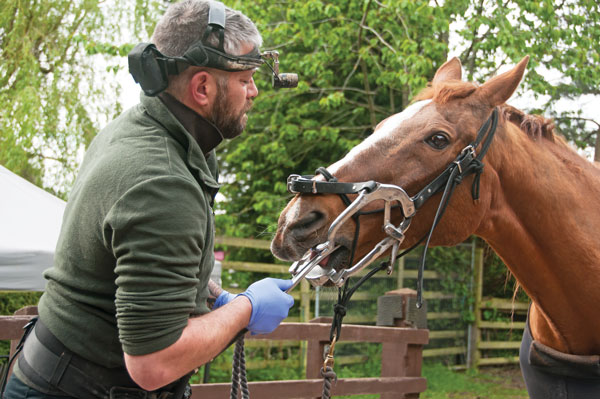
February is Countrywide Equine Dental Wellbeing Thirty day period, so Jeff Corridor, DVM, with Equine Complex Services at Zoetis recently hosted a webinar to share some survey results that could help horse entrepreneurs maintain their horses’ dental well being in peak problem.
Corridor states that dental challenges can have an impression on a horse’s actions this might feel apparent, but it is frequently the final thing persons consider of if their horse has a sudden adjust.
Tooth Abscess Discomfort
Corridor talked over a paper revealed in the June 2019 Journal of Equine Veterinary Science (“Behavioral Indications Affiliated With Equine Periapical An infection in Cheek Teeth”) that hypothesized that eliminating an abscessed tooth would decrease or reduce conduct issues, considering the fact that suffering has an effect on habits.
◆ In the research, 86% of horses that had abscessed teeth taken off confirmed minimized behavioral signals, when 50% showed a finish elimination of these indicators.
◆ 88% confirmed much less little bit-relevant actions indicators, and 38% no extended noticed any little bit-linked behavior indications soon after the abscessed tooth was taken off.
Proprietor Study
According to a 2020 equine dental wellness survey performed by Zoetis of 4,500 horse owners, 73% of proprietors experienced horses with indications of dental pain, and 22% of their horses had not had a dental examination in extra than just one year.
What constitutes “signs of dental discomfort?” Some examples of dental soreness signals from the survey involve: complications with ingesting and ingesting, feeding on hay bit by bit, dropping hay, evading the little bit, a change concerning right and remaining rein speak to, withdrawn or asocial behavior, and head-shyness.
Suggested Dental Treatment
The American Association of Equine Practitioners (AAEP) endorses an yearly dental examination for most horses, although age and performance level may point out extra frequent exams.
A dental exam takes around 10 to 30 minutes and assesses inside and exterior structures. It demands sedation and a total-mouth speculum for protection.
The price of a standard dental test relies upon on your vet and place but ranges from $35-$100. Some vets do not demand for the test, but alternatively roll the price tag into any processes needed to right abnormalities.
It’s a lot much easier to commit in an exam to handle and resolve challenges by discovering them early on. This will reduce your vet expenses in the lengthy run.
As an important observe, the AAEP recommends that only licensed vets do dental tests and methods for safety explanations. Equine veterinarians are trained in anatomy, sedation and dental strategies in vet university, some also obtain more advanced education outside of vet school.
If you do use a lay dentist (1 with no a veterinary degree), Corridor suggests at the pretty minimum getting a vet present. When some lay dentists are proficient and do a fantastic task, they must keep a close partnership with a veterinarian in case a hard predicament occurs.
Dental Well being 12 months-Round
It is great to distribute out your horse’s feedings for several good reasons, these as decreasing his anxiety degree and maintaining his intestine relocating. Grazing (in a pasture or on hay) all day as nature supposed also can help with suitable chewing and tooth don, so preserving equine dental well being.
If your horse is going through any uncommon behavior challenges, these kinds of as all those mentioned earlier mentioned, take into consideration possessing your veterinarian out for a dental examination to see if tooth pain could be the root bring about of the difficulty.
